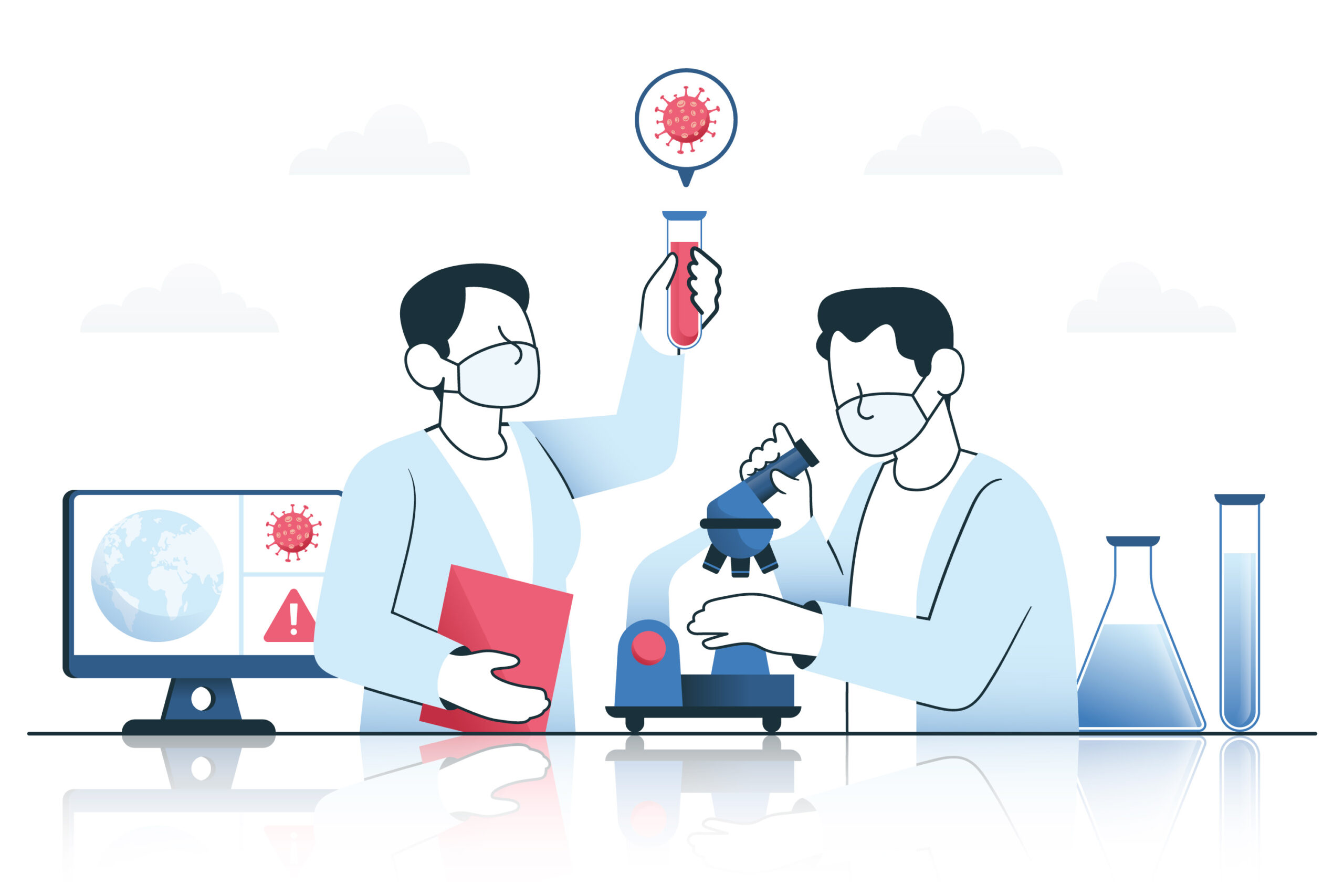
Preparing for a Pharmaceutical Quality Control (QC) interview as a fresher requires a solid understanding of the QC processes in pharmaceutical manufacturing, analytical techniques, and a focus on regulatory compliance. Quality control plays a critical role in ensuring that pharmaceutical products meet the required standards of quality, purity, and safety. As a fresher, you will be expected to demonstrate your knowledge of laboratory techniques, analytical instruments, and regulatory guidelines such as GMP (Good Manufacturing Practices) and GLP (Good Laboratory Practices).
1. Preparation for the Interview
- Understand the Role: Quality Control (QC) in pharmaceuticals involves testing raw materials, in-process samples, and finished products to ensure they meet specified standards. QC ensures the safety, effectiveness, and quality of drugs.
- Learn Key Analytical Techniques: Be familiar with common analytical techniques used in QC labs, such as High-Performance Liquid Chromatography (HPLC), Gas Chromatography (GC), UV-Vis Spectrophotometry, and titration methods.
- Familiarize with Regulatory Guidelines: Understanding Good Manufacturing Practices (GMP) and Good Laboratory Practices (GLP) is critical. Know the importance of maintaining documentation and following Standard Operating Procedures (SOPs).
- Study Equipment and Procedures: Be ready to discuss the operation, calibration, and maintenance of common lab equipment. Familiarize yourself with dissolution testing, moisture analysis, and microbial testing.
- Attention to Detail: Quality control requires high attention to detail and adherence to protocols, so prepare to demonstrate your ability to work methodically and carefully.
2. Key Skills Required
- Analytical Skills: Ability to conduct tests using analytical techniques like HPLC, GC, and UV-Vis Spectrophotometry.
- Attention to Detail: Ensuring accurate results and compliance with SOPs and regulatory requirements.
- Regulatory Knowledge: Familiarity with GMP, GLP, and other regulatory guidelines to ensure product quality.
- Documentation: Ability to maintain detailed records of tests, results, and deviations from the norm.
- Problem-Solving Skills: Ability to identify deviations in quality and troubleshoot potential issues in the production process.
- Basic Laboratory Skills: Familiarity with sample preparation, solution preparation, pipetting, and weighing procedures.
3. Common Interview Questions and Suggested Answers
Basic Knowledge and Industry Understanding:
- Q1: What is the role of Quality Control in the pharmaceutical industry?
A1: Quality Control in the pharmaceutical industry ensures that raw materials, intermediates, and finished products meet specific quality standards. It involves conducting analytical tests to ensure that the product is safe, effective, and compliant with regulatory requirements. QC is crucial in maintaining product consistency and preventing defective products from reaching the market. - Q2: Can you explain the difference between Quality Control (QC) and Quality Assurance (QA)?
A2: Quality Control (QC) focuses on testing products to ensure they meet required specifications and standards, typically at the end of the manufacturing process. It involves sampling, testing, and documentation. Quality Assurance (QA), on the other hand, focuses on ensuring that the processes involved in production are followed correctly and consistently. QA aims to prevent defects by establishing quality management systems and SOPs, while QC detects defects through testing.
Analytical Techniques Questions:
- Q3: What is HPLC, and how is it used in pharmaceutical quality control?
A3: High-Performance Liquid Chromatography (HPLC) is an analytical technique used to separate, identify, and quantify compounds in a mixture. In pharmaceutical quality control, HPLC is commonly used to test the purity of raw materials, in-process samples, and finished products by separating and analyzing active pharmaceutical ingredients (APIs) and impurities. - Q4: Can you explain the principle of Gas Chromatography (GC)?
A4: Gas Chromatography (GC) is a technique used to separate and analyze volatile compounds. It involves the injection of a sample into a heated inlet, where it is vaporized and carried by an inert gas (mobile phase) through a column packed with a stationary phase. As the compounds pass through the column, they separate based on their interactions with the stationary phase, and their retention times can be used to identify and quantify them.
Regulatory and Compliance Questions:
- Q5: What are Good Manufacturing Practices (GMP), and why are they important in pharmaceutical quality control?
A5: Good Manufacturing Practices (GMP) are a set of guidelines that ensure products are consistently produced and controlled according to quality standards. GMP is important in pharmaceutical quality control because it ensures that products are safe, effective, and of high quality. It covers all aspects of production, including raw materials, equipment, personnel, and the production environment, ensuring that every step of the process is controlled to prevent contamination and errors. - Q6: What is the importance of calibration in quality control?
A6: Calibration is the process of adjusting and verifying the accuracy of laboratory instruments. It ensures that instruments produce accurate and reliable results. In quality control, regular calibration of equipment like HPLC, UV-Vis spectrometers, and balances is crucial because inaccurate measurements can lead to incorrect conclusions about product quality, potentially resulting in product recalls or regulatory issues.
Scenario-Based Questions:
- Q7: How would you handle a situation where a product batch fails to meet quality specifications?
A7: If a product batch fails to meet quality specifications, I would first ensure that all testing procedures were followed accurately and without error. I would recheck the sample to confirm the results and review the production and testing records to identify any possible deviations or issues. If the failure is confirmed, I would follow the company’s SOPs for handling out-of-specification (OOS) results, which may include quarantining the batch, investigating the root cause, and reporting the issue to the quality assurance team. - Q8: You notice a deviation in one of your test results while performing routine quality control checks. What steps would you take?
A8: If I notice a deviation during routine QC checks, I would first ensure that the deviation was not caused by human error or equipment malfunction. I would recheck the test procedure, verify that the equipment is calibrated, and retest the sample if necessary. If the deviation persists, I would document the issue and notify my supervisor or the quality assurance team for further investigation. It’s important to follow the company’s SOPs in such situations and ensure thorough documentation of the deviation and any actions taken.
Technical and Practical Skills Questions:
- Q9: Can you explain the importance of dissolution testing in pharmaceutical quality control?
A9: Dissolution testing measures how quickly and efficiently a drug releases its active ingredient in the body. It is an important part of pharmaceutical quality control because it helps to ensure that the drug will perform as expected when administered. A drug’s dissolution profile can affect its bioavailability, and this test is used to confirm batch consistency and compliance with the product’s specifications. - Q10: What is UV-Vis Spectrophotometry, and how is it used in quality control?
A10: UV-Vis Spectrophotometry is an analytical technique used to measure the absorbance or transmittance of a substance at specific wavelengths of ultraviolet or visible light. In pharmaceutical quality control, it is commonly used to determine the concentration of APIs and impurities in a sample. It is a simple and quick method for ensuring the quality and consistency of pharmaceutical products.
Behavioral and Soft Skills Questions:
- Q11: Describe a time when you had to pay close attention to detail in your academic projects or internships. How did you ensure accuracy?
A11: During my academic lab work, I had to prepare chemical solutions with precise concentrations for an experiment. I ensured accuracy by carefully calculating the quantities needed, double-checking my measurements, and following the preparation procedure step-by-step. I also documented everything in my lab notebook, which helped me keep track of my work and troubleshoot any issues that arose. - Q12: How do you handle repetitive tasks while maintaining accuracy and focus in a lab setting?
A12: Repetitive tasks are common in a lab setting, and I stay focused by reminding myself of the importance of the work and its impact on product quality. I take short breaks when needed to refresh my concentration, and I follow a systematic approach to ensure consistency. By adhering to protocols and regularly checking my work, I maintain accuracy even in repetitive tasks.
Learning and Growth Questions:
- Q13: As a fresher, how do you plan to improve your skills in quality control?
A13: I plan to improve my skills by learning from experienced colleagues, taking part in training programs, and staying updated with the latest developments in analytical techniques and regulatory requirements. I am also interested in pursuing certifications related to quality control and GMP to enhance my knowledge and expertise in the field. - Q14: Why are you interested in a career in pharmaceutical quality control?
A14: I am interested in pharmaceutical quality control because I want to contribute to the production of safe and effective medications that improve patient health. The role allows me to apply my scientific knowledge in a practical setting while ensuring that products meet the highest standards of quality. I enjoy working in a laboratory environment and find the process of analyzing and validating products fascinating.














